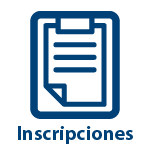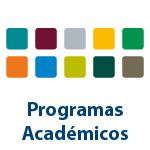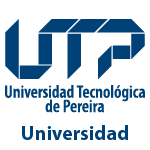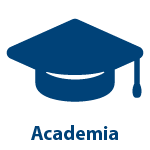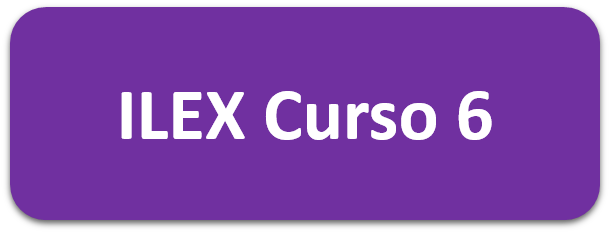Contenido de los cursos de inglés
| Contents | Grammar and function |
|---|---|
| The academic, professional, and personal lives of people from countries in all continents: their routines, study habits, salaries, expenses, liabilities, places where they work, things they possess, challenges and difficulties they face, etc. | Using the verbs to be, to have, and to like to express facts about my personal, professional, and/or academic life and that of others. |
| Healthy lifestyles: keeping fit, healthy foods, healthy dietary habits, yoga, mental and physical health, etc. | Using the present simple to express facts about my life and that of others, related to occupations, responsibilities, schedules, and past-time activities. |
| Current educational, technological, and scientific breakthroughs, ideas, and discoveries. | Using there is, there are, some, any, a lot of, this/that, and these/those to express existence or lack thereof, to point to people, animals, and things and give information about them. |
| Language learning techniques: using memory well, reviewing notes effectively, using appropriate data sources, using the internet critically, being an autonomous learner, etc. | Using can/can’t, could/couldn’t to express skills or lack thereof. |
| Current educational, technological, and scientific breakthroughs, ideas, and discoveries. | Using the past tense (was/were – regular and irregular verbs) to express past events and facts about me, others, and the world. |
| Contents | Grammar and function |
|---|---|
| Tourism and touristic places from different countries: facts, commercial information, history, descriptions, etc. | Using the past tense (was/were – regular and irregular verbs) to express events, actions, and facts occurring in the past. |
| Food and eating habits around the world. | Using some, any, (how) much and many, count and uncount nouns, like and would like to to express food-related information: prices, needs, preferences, and wants. |
| Cities, landmarks, and important places around the world. | Using comparative and superlative forms of adjectives to describe, compare, contrast, and give facts about people, things, animals, and places. |
| Important cultural, social, and academic events around the world: festivals, concerts, conferences (e.g. Climate Change Conference) | Using the present continuous to express actions happening at the moment of speaking. |
| Planning a successful academic and professional life. | Using going to to express future plans and actions. |
| A combination (or review) of the contents above. | Using the present perfect (never and ever – yet and just) to express life experiences. |
| Contents | Grammar and functions |
|---|---|
| Influential people and their contributions to the world, including environmentalists, philanthropists, political activists, entrepreneurs, etc. | Using the present simple and continuous, past, and future (going to) to express information about me and others. |
| Major historical events in Latin-America and the world | Using the past simple and continuous to describe important events and situations in the past, stories, and anecdotes. |
| School/Student stress and stress in general: symptoms, biological causes, and treatment. | Using how much-many, some-any, a lot-lots of to express quantity. |
| Being a college student: challenges, peer pressure, social and binge drinking, coping with homework, etc. | Using the verb patterns below to express desires, expectations, preferences, and plans/actions. want/hope to like/enjoy + ing looking forward to + ing would like to going to will ( for promises) continuous -ing (future) |
| A combination (or review) of the contents above. | Using the forms below to describe, compare, contrast, and give facts about people, things, animals, and places. What … like? Comparative and superlative forms of adjectives as…as |
| Contents | Grammar and functions |
|---|---|
| Paranormal phenomena and mysteries: UFOs, ghosts, hauntings, reincarnation, myths and legends, etc. | Using the past simple and present perfect to express life experiences and their duration (since-for). |
| Environmentalism: issues, awareness, and tips. | Using have and must to express obligation and should to express recommendations or advice. |
| Movies: genres, plots, adaptations, actors, awards, sagas, etc. | Using past tenses -simple, progressive, and perfect- to describe events, situations, and facts in the past. |
| Contents | Grammar and functions |
|---|---|
| Uses of technology in science, security, education, medicine, communication, everyday life, etc. | Using passive voice to express emphasis on actions and subjects (what is done to something/someone). |
| Outdoor recreation; for example: mountain activities (rock climbing, mountain biking); aero activities (gliding); and others. | Using the present perfect simple and continuous to express actions that started in the past and continue or have results in the present. |
| Brain fitness: exercises, tips, physical activity, and cognition. | Using the first conditional to express conditions and their results. Using the second conditional to express 1) imaginary conditions and their results and 2) advice. |
| Contents | Grammar and functions |
|---|---|
| Cultural habits from different countries around the world and how they are similar to / different from Colombia: body language, addressing, food, celebrations, dress code, and others. | Using the present simple, perfect, and past simple to ask for and give information about facts, actions, and events. |
| The world of work: Salaries, dream jobs, job requirements, stressful jobs, entrepreneurship, etc. | Using present tenses (simple, continuous, and passive) to ask for and give information about mine and others’ professional lives and free-time activities. |
| Major literary genres: novels, poems, short stories, (graphic) novels, and others. | Using past tenses (simple, continuous, perfect, and used to) to narrate stories, events, experiences, and anecdotes. |
| Interaction with people from different countries: rituals, rules, expectations, stereotypes, social status, dating and relationships, etc. (Related to first topic above but focused on interacting with others to gain intercultural understanding.) | Using the verbs and verb phrases below for their corresponding functions: should: recommendation and advice. must: obligation can-allowed to: permission have to: obligation don’t have to: lack of obligation |
| Contents | Grammar and functions |
|---|---|
| Academic and cultural exchange experiences: scholarships, research and teaching assistantships, summer camps, volunteering overseas, etc. | Using the verb tenses and modals below for their corresponding functions: will for predictions based on opinions going to for predictions based on evidence ing for arranged plans may, could, and might to express future possibilities |
| Travelling abroad: VISAs, airports and flights, immigration, required vaccinations, travel plans, managing local currency, travel tips, etc. | Using Wh- questions to find out information about people, things, and situations. |
| Sports: outstanding people, events, rules, gear, etc. | Using the present perfect simple and continuous to express facts about other people, situations, and things. Using the present perfect simple in passive voice to express facts and add emphasis to subjects and actions. |
| Studying abroad: types of courses and programs, requirements, educational environments, challenges and difficulties, etc. | Using the verb patterns below for their corresponding functions: need to: expressing need make + object + verb: forcing someone or being forced by someone to do something enjoy + ing: expressing pleasure from doing something. remember to do: expressing memory or lack thereof think of + ing: expressing plans look forward to + ing: expressing happiness and/or excitement about something that is going to happen. |
| Contents | Grammar and functions |
|---|---|
| The world of work: contracting, working in teams, multinational corporations, managing work relationships and stress, liabilities, etc. | Using the conditionals below for their corresponding functions: First conditional: expressing a probable condition and its result Second conditional: expressing 1) imaginary conditions and their results and 2) advice. Third conditional: expressing regret about something in the past. |
| Job hunting: career advice, preparing for an interview, writing a good CV, reflecting upon personal profile, and others. | Using noun phrases to refer to things, people, or situations. |
| Skills employers expect from university graduates: leadership, initiative, time management, problem solving, and others. | Using modals to express probabilities and to speculate. In present: must/can’t/might/could be In past: must/can’t/might have been |
| Celebrities and social causes: sportsmen, actors, artists, musicians, etc. | Using reported speech to express what someone has said or done. Using reported thoughts to express when one is misinformed. Using reported questions to ask for information. |
Conozca la estructura curricular de cursos de inglés previos al 2015-2



